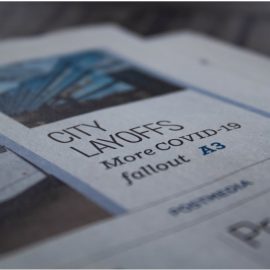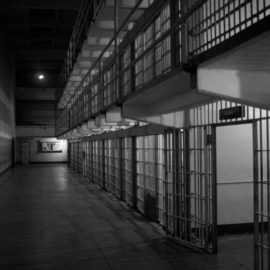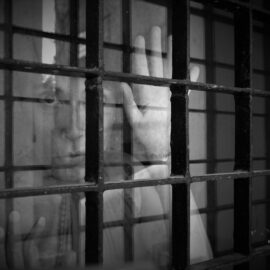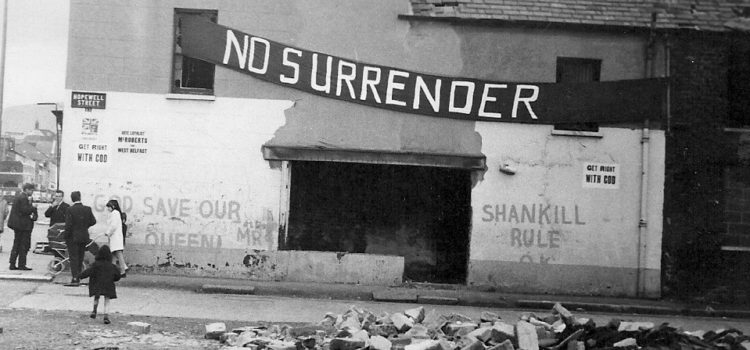
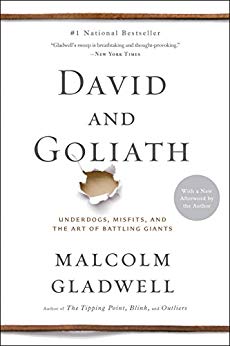
This article is an excerpt from the Shortform summary of "David and Goliath" by Malcolm Gladwell. Shortform has the world's best summaries of books you should be reading.
Like this article? Sign up for a free trial here .
What were the Troubles? What caused the situation to escalate so quickly? What actions and attitudes could have changed its course?
The Troubles was a time of violence in Northern Ireland rooted in ethnic, political, and religious conflict. During the Troubles, the Catholics were the Davids (underdogs) and the British Army was the Goliath (the powerful giant).
We’ll discuss two aspects of Goliath’s power that actually make him less powerful: the limits of authority and the negative effects of the overuse of power.
The Troubles: Davids v. Goliath
What Goliaths, people with overt power, tend to misunderstand about power is that it has limitations. The traditional hallmarks of power—massive weapons, years of experience, society’s blessing—can only take you so far. The degree to which you are powerful depends, in part, on how much power your “subjects” are willing to give you. This was painfully apparent during the Troubles.
The Principle of Legitimacy
Before we look at the Troubles specifically, we need to understand the Principle of Legitimacy. An authority figure’s power over the rest of us is especially limited if we don’t perceive him and his power as being “legitimate.” An authority’s legitimacy is based on three things:
- We, the subjects, need to have a voice. And we need to believe that those in power care about what we have to say.
- We need to feel that the law we’re being asked to abide by is predictable.
- We need to feel that the law and the people enforcing it are fair.
As we’ll see in the example of the Troubles, if people don’t think your rule is legitimate, they become defiant, rather than submissive, when they don’t view the authority as legitimate. Authorities may make the rules, but they have trouble enforcing them without legitimacy. In fact, if you aren’t “legitimate” and you exert your power, you may get the opposite of your intended effect.
The Troubles and the Principle of Legitimacy
In the late 1960s, antagonism between Northern Ireland’s Catholic minority and Protestant majority came to a head. The UK government called in the British (mostly Protestant) Army to keep the peace.
Ian Freeland was the general in charge in Northern Ireland. He believed in ruling by force. He intended to meet any resistance with immediate and brutal punishment and didn’t care what anyone, particularly Catholics, thought about it.
Aiming to scare the rioters on both sides, Freeland threatened to shoot anyone caught throwing gasoline bombs. This backfired. The more Freeland threatened, the more violence occurred.
- In 1969, there were 13 deaths.
- In 1971, there were 184 deaths.
- In 1972, there were 497 deaths.
In response to the violence, Freeland suspended civil rights and brought in more troops. The army held suspects in prison without a trial, and soon, most Catholics had at least one family member in prison.
Freeland’s Miscalculation During the Troubles
One incident demonstrates Freeland’s soldiers’ liberal use of force (and how it backfired).
- After receiving a tip that one house in Lower Falls, a Catholic neighborhood, contained explosives, the army came to search it. The local priest warned that the residents would cause trouble if the soldiers didn’t complete the raid quickly.
- As the soldiers started to leave the neighborhood in their armored cars, a few young men threw rocks at them. The soldiers stopped the cars and brought out the tear gas. The conflict escalated quickly from there.
- The priest begged the soldiers to stop the tear gas, promising to restore order if they did, but the soldiers refused to listen. As the priest turned to walk away, he was gassed as well. The army brought in helicopters, declared a curfew, and ransacked every house in the neighborhood, trashing them.
- After the Lower Falls had been under curfew for 36 hours, residents were running out of food (they weren’t wealthy and many houses didn’t have refrigerators).
- A woman named Harriet Carson rallied the women of neighboring Ballymurphy to gather bread and milk and bring it to the Lower Falls in prams, in defiance of the army and curfew.
- At first, soldiers knocked over women who tried to trespass the barricade. As more and more marchers approached with their prams, residents of the Lower Falls started coming out into the streets. The British Army lost control and gave up.
The British Army’s illegitimate use of power during the Troubles turned a conflict that should have lasted a few months into 30 bloody, chaotic years.
What made Freeland’s approach to the Troubles illegitimate? Why didn’t it work?
To the Catholic minority, Freeland’s actions didn’t seem predictable or fair.
- The soldiers sent to be neutral peacekeepers were Protestant. This didn’t seem fair to the Catholics, who assumed that, when push came to shove (often literally), the soldiers would side with the Protestant Loyalists. They weren’t wrong.
- On one occasion, when Protestant Loyalists marched through the Catholic neighborhood of Ballymurphy, British soldiers stood as a buffer between the marchers and the residents. But the soldiers faced away from the street, giving the impression that they were protecting the marchers from the residents.
- Suspects didn’t get a trial.
- The Army shot and killed one young man when he went outside with a friend to smoke a cigarette. This was not an isolated incident.
- The curfew in some Catholic neighborhoods meant residents were imprisoned in their homes without enough food to feed their large families.
- Rather than searching one suspicious house, soldiers ransacked the whole neighborhood. (The army had searched every Catholic home an average of two times by the mid-1970s.)
The Catholic minority refused to abide laws that weren’t fair or predictable, causing more and more trouble for Freeland and the British Army. The Troubles could have been a much shorter ordeal, had the British Army ruled with legitimacy.
———End of Preview———

Like what you just read? Read the rest of the world's best summary of "David and Goliath" at Shortform . Learn the book's critical concepts in 20 minutes or less .
Here's what you'll find in our full David and Goliath summary :
- Why being the underdog can actually be an advantage
- Why you shouldn't be afraid of powerful giants
- Strategies to get an edge when you're overpowered

